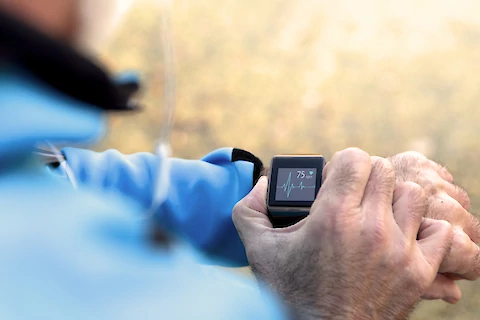
Heart health is an important consideration for seniors looking to live long, healthy lives. For active seniors, tracking cardio fitness activity can be especially beneficial when it comes to managing heart rate and heart health—this includes understanding what a "normal" resting and active heart rate should be. In this blog post from Senior Helpers Lehigh Valley, we will discuss what your average active and excessive heart rates should look like as a senior.
What Should Active Heart Rate Be?
For those seniors who engage in regular physical activity, the Mayo Clinic notes that the normal resting heart rate for adults ranges from 60 to 100 beats per minute. A lower heart rate at rest implies more efficient heart function and better cardiovascular fitness. If your active heart rate is around on the lower side, give yourself a pat on the back. In fact, performance athletes often have a heart rate that is around the 40 beats per minute range.
There are a few different ways you can check your active heart rate at home. To do this in just a few steps, try to find your radial artery and count how many beats you feel in 15 seconds. As noted by Healthline, you can then multiply that number by 4 to get your active heart rate.
Average Resting Heart Rate
For those who are relatively inactive, your resting heart rate should be lower than what you would experience during physical activity. A healthy resting heart rate for seniors is typically between 60 - 100 beats per minute. It can be checked by taking your pulse for at least fifteen seconds and multiplying that figure by 4. Don't panic if your measurements come in slightly higher or slightly lower. There could still be a number of factors that influence it such as intense heat or stress levels.
Consult A Doctor With Any Concerns
When tracking heart rate it is important to note any drastic changes from the parameters discussed above. Of course, your age and overall health can also influence what a normal range looks like. As such, we always recommend consulting your physician about any concerns or abnormal numbers. Some symptoms to watch out for include a racing heartbeat, chest pains, or tightness in your chest area. If any of these things start to happen to you, reach out to your healthcare provider immediately.
Senior Helpers Provides Senior Care in Lehigh Valley
Monitoring your heart rate can help you to engage in healthy physical activity as a senior. While targeting the parameters outlined in this post might be helpful for you, we always suggest consulting with your physician about any concerns or abnormal numbers.
Senior Helpers Lehigh Valley provides top-of-the-line senior care solutions for senior adults in the Allentown, Bethlehem, Kutztown, Nazareth, Whitehall, and Schnecksville areas. Contact us today to learn more about the services that we offer and to discuss how we can make your life easier!